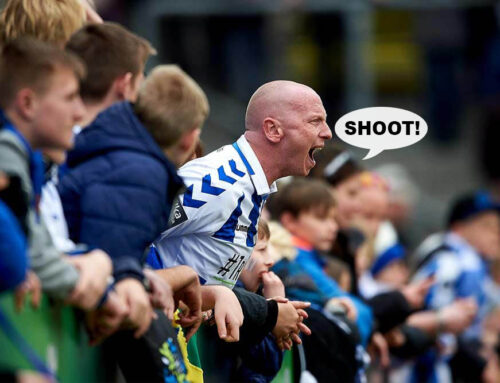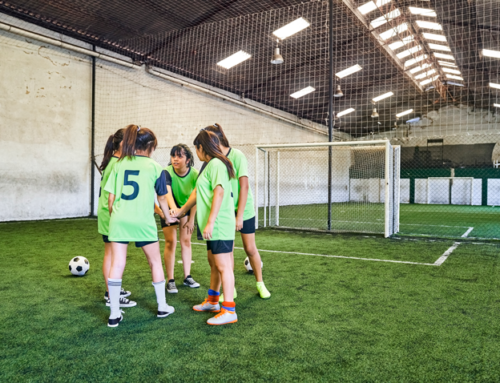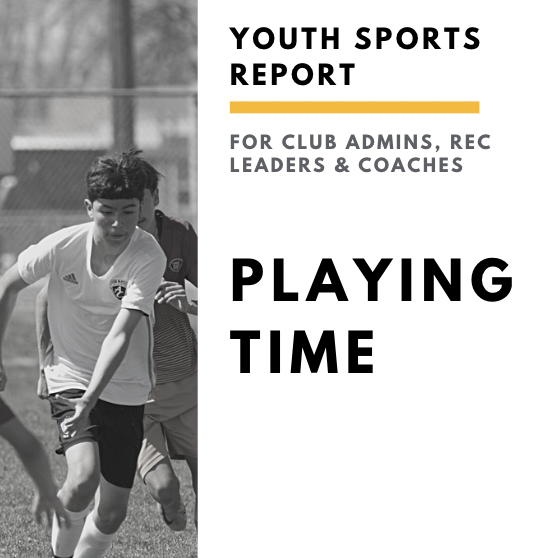Get our exclusive report. Download the iSport360 Club Switching Report Here – For Club Admins, Rec Leaders and Coaches.
Benefits of Rec Sports: Why We Love Them
Fast forward to my kids and the experiences playing rec sports. They played T-ball, lacrosse, field hockey, soccer, basketball, softball, and ran track. The benefits of playing recreational sports were countless. We loved the article from The Reformed Sports Project on how we need to fall in love with rec sports again. Think about it, just about every athlete starts out playing grassroots recreational-based sports.
Recreational youth sports have long been a cornerstone of childhood experiences, offering young athletes the opportunity to engage in physical activity, develop essential life skills, and forge lasting friendships. In this blog post, we will explore the numerous benefits of participating in recreational youth sports, highlighting the positive impact they have on the physical, social, and emotional development of children.
Physical Fitness and Health
Engaging in recreational youth sports provides children with regular physical exercise, helping them build a foundation of health and fitness. Whether it’s soccer, basketball, swimming, or any other sport, the physical demands of these activities contribute to cardiovascular health, muscle development, and overall physical well-being. Regular participation in sports helps combat sedentary lifestyles, obesity, and related health issues by instilling healthy habits that can last a lifetime.
Skill Development and Coordination
Recreational youth sports offer an excellent platform for children to learn and refine various skills. From hand-eye coordination in baseball to agility and balance in gymnastics, each sport presents unique challenges that help young athletes improve their motor skills and overall physical coordination. Through practice, training, and structured gameplay, children acquire and hone fundamental skills, providing a solid foundation for their future athletic endeavors.
Social Interaction and Teamwork
Participating in recreational youth sports fosters social interaction and the development of crucial interpersonal skills. Being part of a team teaches children how to communicate effectively, collaborate, and cooperate with their peers. They learn to respect and value different perspectives, work towards shared goals, and rely on one another for support. These experiences build lifelong friendships and contribute to the development of well-rounded individuals capable of thriving in collaborative environments.
Character Building and Personal Growth
Recreational youth sports serve as a powerful platform for character-building and personal growth. Facing challenges, both on and off the field, teaches children resilience, perseverance, and the ability to overcome adversity. They learn the importance of discipline, time management, and setting goals to achieve success. Sports also provide leadership opportunities, as children may take on captain roles, mentor younger teammates, or demonstrate sportsmanship through fair play and respect for opponents.
Confidence and Self-Esteem
Participating in recreational youth sports instills a sense of confidence and self-esteem in children. As they acquire new skills, witness personal improvement, and contribute to team success, their self-belief grows. Positive reinforcement from coaches, parents, and teammates further boosts their self-esteem, helping them develop a positive self-image and the belief that they can overcome challenges not only in sports but in other areas of life as well.
Stress Relief and Emotional Well-Being
Recreational youth sports provide an outlet for children to release stress, channel their energy, and manage their emotions effectively. Physical activity releases endorphins, which promote a sense of well-being and reduce anxiety and stress. Additionally, the camaraderie, support, and sense of belonging that comes from being part of a team contribute to improved mental health and overall emotional well-being.
Recreational youth sports offer a multitude of benefits that go beyond the boundaries of the playing field. From physical fitness and skill development to social interaction and personal growth, participating in these activities enriches the lives of young athletes. By encouraging children to engage in recreational sports, we empower them to lead healthier lives, develop valuable life skills, and build the foundation for a lifetime of physical and emotional well-being. The life lessons are endless.
iSport360 is the only app that does it all for youth sports. For more information on what we do, click here.
About the Author:
Amy Masters is a sports mom, coach, and club administrator. She has been coaching youth sports for more than 10 years. She started Jr Lions Field Hockey. It is the youth recreation program for the Hunterdon County community. She grew it from 40 players in year 1 to 150 players by year 3. A few years later, she saw the love and competitiveness grow then started Omega Field Hockey Club serving NJ and PA players. Prior to coaching, she was a collegiate field hockey player for Lock Haven University. In her spare time (lol), she is head of marketing for iSport360, where she brings her love of sports to a bigger audience.
Learn more or request a demo of our youth sports software that is helping teams improve communication, organization and player development.
January 5, 2024





